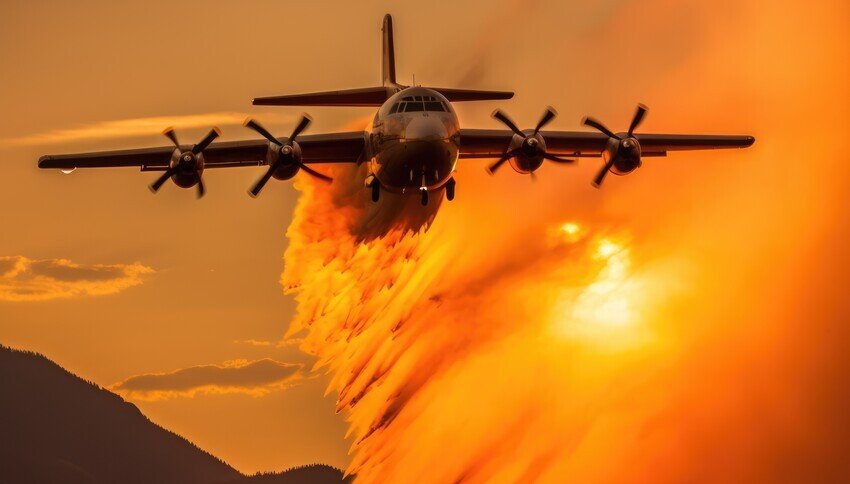Air travel is usually very safe. But crashes still occur. Many are tragic. So people often ask: How Many Plane Crashes in 2025? And what causes them?
How Many Plane Crashes in 2025?
It is hard to get precise, final numbers. But we have useful data so far. According to the Aviation Safety Network, there have been about 61 “occurrences” in 2025. These include serious accidents and crashes involving large aircraft.
One of the worst is Air India Flight 171, which crashed soon after takeoff on June 12. That crash killed nearly all on board and many on the ground. In the U.S., there have already been 55 fatal aviation crashes in 2025. Also, between January and April, the NTSB logged 250 aviation incidents or accidents.
Another count says the NTSB is investigating 140 plane crashes in 2025 in the U.S., of which 16 were deadly. Thus, How Many Plane Crashes in 2025 depends on what you count: all incidents, fatal ones, or only large commercial crashes. By mid-year, the number of serious plane crashes globally is rising compared to recent years.
Examples of 2025 Crashes
- Air India Flight 171 (India) – 242 onboard. Only one survived. Many on the ground also died.
- Light Air Services Beechcraft 1900 crash (South Sudan) – 20 killed of 21 onboard.
- Royal Thai Police DHC-6 crash (Thailand) – a test flight crashed into the sea after engine failures. Six died.
- Aerolínea Lanhsa Flight 018 (Honduras) – crashed after engine trouble. 13 of 18 died.
- Air Busan Flight 391 (South Korea) – did not kill anyone but had a fire while taxiing.
These show the variety of crashes — from small planes to large jets.
What Are the Main Causes?
Crashes rarely have just one cause. Many factors combine. Still, some causes appear most often.
Pilot Error / Human Mistakes
This is the top cause in many studies. Errors may include poor judgment, flying into bad weather, or losing control of the aircraft.
Mechanical Failure / Equipment Faults
Failures in engines, hydraulics, and electronics can cause accidents. In the Air India crash, investigators found that both engines lost thrust after the fuel control switches moved to “CUTOFF.”
Weather & Environmental Conditions
Storms, turbulence, ice, and wind shear pose serious threats. Poor visibility or sudden storms often precede crashes.
Air Traffic Control and Navigation Errors
Mistakes by controllers or wrong instructions can lead to collisions.
Design / Manufacturing Defects
Flaws in aircraft design or faulty parts can contribute.
Poor Maintenance & Improper Repairs
If mechanics miss problems or do bad repairs, the risk increases.
Other Causes
These include sabotage, terrorism, runway incursions, fuel exhaustion, or bird strikes. In many crashes, investigators find that pilot error is in the chain of causes. Roughly 70 % of crashes involve human error in some form.
Why Crashes Still Happen
- Aviation is complex. Many systems must work in harmony.
- Even small mistakes can escalate.
- Legacy systems and aging aircraft add risk.
- Extreme weather is becoming more unpredictable.
- Some regions have weaker safety oversight.
As flight numbers rise, the absolute count of crashes may also rise, even if rates (crashes per million flights) stay low.
Safety Trends & Future Outlook
Over the last decades, crash rates have generally declined. New technology (better navigation, automation, and weather forecasting) helps. Still, 2025 may be unusually deadly because of big crashes like Air India’s. Investigations of 2025 crashes may lead to new rules and safety fixes.
Conclusion
The question “How Many Plane Crashes in 2025?” cannot yet have a definitive answer. So far, dozens of serious crashes have occurred globally. The United States alone reported 55 fatal crashes midyear. The Air India Flight AI171 crash and the Potomac River mid-air collision are among the highest loss events in 2025. Major causes include human error, system failure, collisions, environmental hazards, and maintenance lapses. Investigations are ongoing. Air travel remains overall safe, but every accident reminds us of the need for vigilance and improvement.
FAQs
Q1: Are plane crashes more frequent in 2025 than before?
It seems yes. The year has seen several high-fatality crashes. The number of serious accidents is higher so far than usual.
Q2: Is air travel still safe despite crashes?
Yes. In relative terms, flying remains one of the safest ways to travel. Crashes are rare compared to flights flown.
Q3: Can all crashes be prevented?
Not all. But many can be reduced by better training, stricter oversight, better maintenance, and better design.
Q4: Who investigates plane crashes?
Usually, independent accident boards in each country lead probes. They use black boxes, flight data, voice data, and expert tests.
Q5: Does one big crash (like Air India) skew the statistics?
Yes. A single large disaster can heavily affect the yearly death toll and public concern, even if crash rates are low.
Read Dive is a leading technology blog focusing on different domains like Blockchain, AI, Chatbot, Fintech, Health Tech, Software Development and Testing. For guest blogging, please feel free to contact at readdive@gmail.com.





